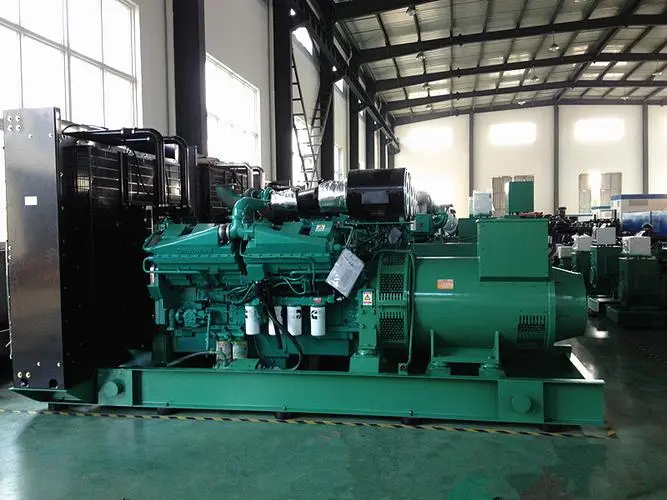Introduction
Diesel generators have long been a reliable source of backup power for a wide range of applications, from residential homes to industrial facilities. While diesel generators are typically associated with heavy-duty applications, they are also well-suited for light load applications where a smaller amount of power is required. In this article, we will explore the benefits of using diesel generators for light load applications, the key considerations to keep in mind when selecting a generator, and some best practices for maintaining and operating diesel generators in this context.
Benefits of Diesel Generators for Light Load Applications
1. Fuel Efficiency: Diesel generators are known for their fuel efficiency, especially when operating at partial load. Unlike gasoline generators, diesel generators are designed to run for longer periods without requiring frequent refueling, making them an ideal choice for light load applications where the generator may not be running continuously.
2. Durability and Reliability: Diesel generators are built to withstand heavy use and are known for their durability and reliability. Diesel generator for construction sites makes them a dependable source of backup power for light load applications where power outages are infrequent but still need to be addressed promptly.
3. Cost-Effectiveness: While diesel generators may have a higher initial cost compared to other types of generators, their lower fuel consumption and longer lifespan can result in cost savings over time, especially for light load applications where the generator is not running at full capacity for extended periods.
4. Easy Maintenance: Diesel generators are relatively low-maintenance compared to other types of generators. Routine maintenance tasks such as oil changes and filter replacements are straightforward and can be easily performed by trained technicians, reducing downtime and ensuring the generator operates efficiently.
Considerations for Selecting a Diesel Generator for Light Load Applications
1. Power Output: When selecting a diesel generator for light load applications, it is essential to consider the power output required to meet the specific needs of the application. Choosing a generator that is appropriately sized for the load will ensure optimal performance and fuel efficiency.
2. Load Profile: Understanding the load profile of the application is crucial for selecting the right diesel generator. Light load applications with variable power requirements may benefit from a generator with load-sharing capabilities or variable speed control to ensure efficient operation under varying conditions.
3. Noise Level: Noise pollution can be a concern in some light load applications, especially in residential or urban settings. Selecting a diesel generator with sound-attenuating features or an enclosed design can help reduce noise levels and minimize disruptions to nearby occupants.
4. Emissions Compliance: Diesel generators are subject to emissions regulations that vary by region and application. When selecting a generator for light load applications, it is important to choose a model that meets or exceeds local emissions standards to minimize environmental impact and ensure compliance with regulations.
Best Practices for Maintaining and Operating Diesel Generators for Light Load Applications
1. Regular Maintenance: Routine maintenance is essential for ensuring the reliable operation of a diesel generator. Scheduled maintenance tasks should include oil and filter changes, fuel system inspections, battery checks, and cooling system maintenance to prevent breakdowns and prolong the generator's lifespan.
2. Load Testing: Periodic load testing is recommended to verify the generator's performance under actual operating conditions. Light load applications may not exercise the generator's full capacity regularly, so load testing can help identify any issues with the generator's ability to handle varying loads effectively.
3. Fuel Management: Proper fuel management is critical for maintaining the efficiency and reliability of a diesel generator. Storing fuel properly, monitoring fuel levels, and using clean, high-quality fuel are essential practices for ensuring optimal generator performance in light load applications.
4. Monitoring and Remote Access: Implementing a monitoring system that allows for remote access to the generator's performance data can help operators track the generator's operation, identify potential issues, and respond promptly to alarms or alerts. Remote monitoring can also facilitate predictive maintenance and troubleshooting to minimize downtime.

Conclusion
Diesel generators are a versatile and reliable power source for light load applications, offering fuel efficiency, durability, and cost-effectiveness for a wide range of settings. By considering key factors such as power output, load profile, noise level, and emissions compliance when selecting a generator, and following best practices for maintenance and operation, users can ensure the optimal performance and longevity of their diesel generator in light load applications. Whether used for residential backup power, remote telecommunications sites, or small commercial facilities, diesel generators are a dependable solution for meeting light load power requirements with efficiency and reliability.
